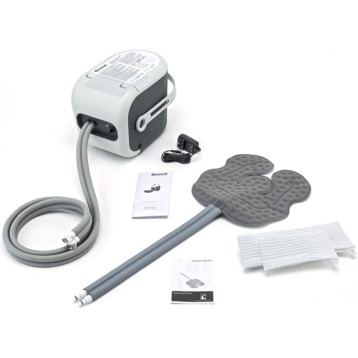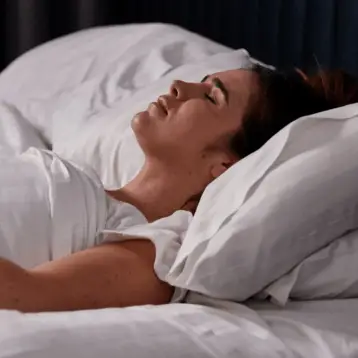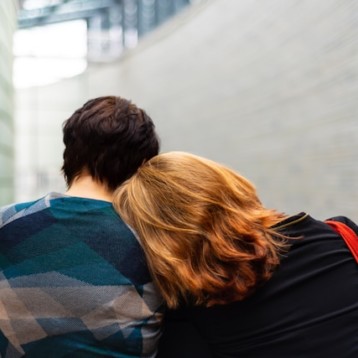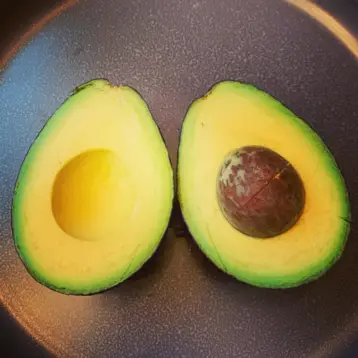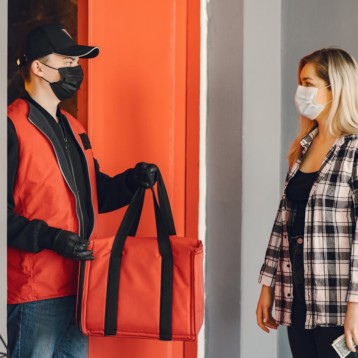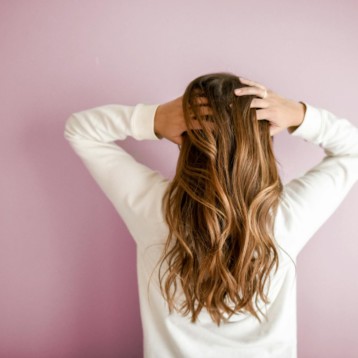More and more adults report sleep issues. It makes no doubt that our modern lifestyle contributes to these. Screen exposure plays a huge role in our sleep quality.
Indeed, according to a study from the Royal College of London and Cardiff University, LED screens emit a damaging blue light. Blue light exists in its natural form in nature, as it is sunlight. Light therapy devices also use beneficial blue light to help people manage the seasonal affective disorder. However, the artificial blue light from screens hurts the nervous system. The circadian rhythm, our bodies’ natural biological clock that regulates sleep-wake cycles, relies on a variety of cues to keep on time. These include the presence of blue light. Unfortunately, screen exposure before bed can make the body think that it isn’t time to sleep. Therefore, you can find it hard to fall asleep if you’ve been using your phone or laptop in the evening. Artificial blue light also affects the quality of your sleep, which means that you could still wake up feeling tired even though you had no issues falling asleep.
Reducing screen time before going to bed can prevent harmful blue light effects. So, if you’ve introduced a screen-less bedtime routine, you should expect to wake up refreshed the next morning. However, it’s not always the case. Why Does it mean that you can safely reintroduce screens into your evening habits? No! But it means that artificial blue light was only one of the sleep robbers. Here are some other issues you may want to consider:
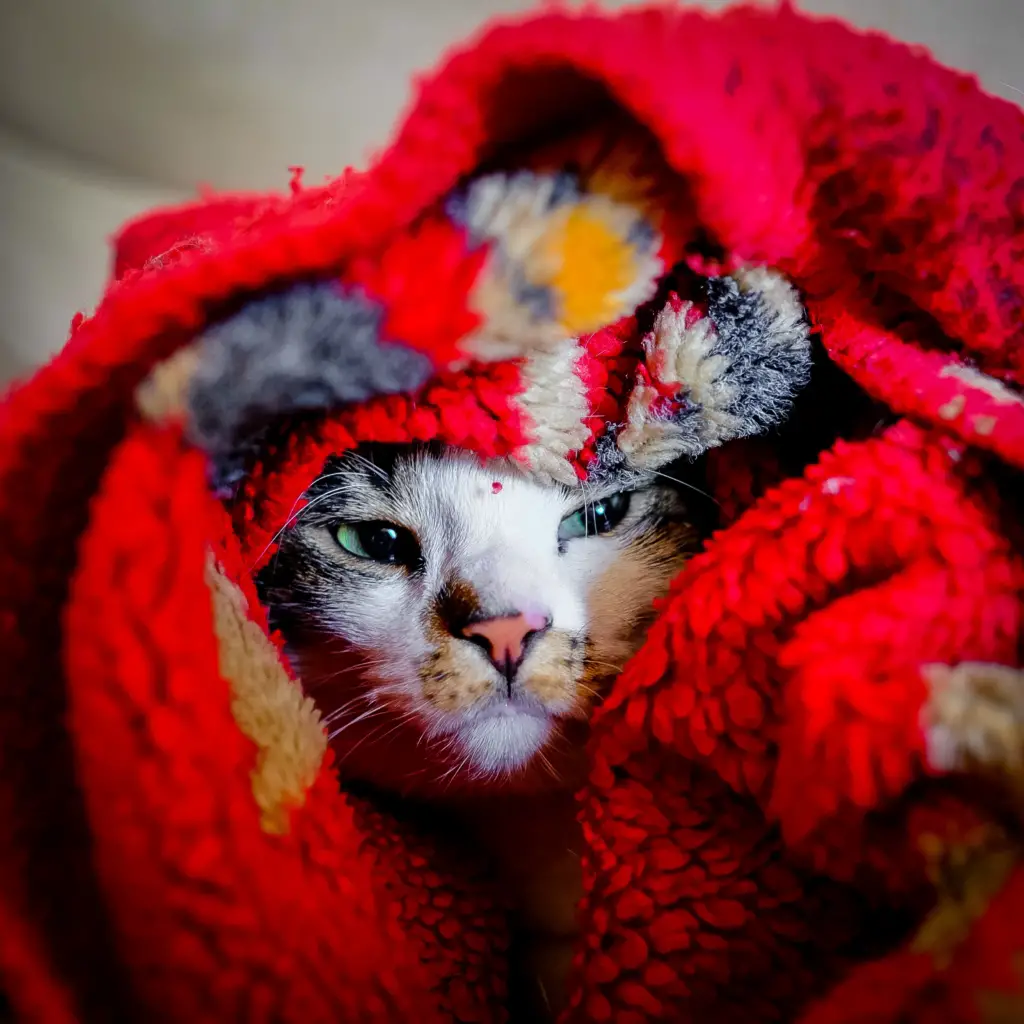
You sleep with your mouth open
Your body naturally knows how to breathe through the nose. It is an effortless process that happens even when you’re sleeping. The natural breathing process at night is through the nose. However, if you keep your mouth open when you sleep, it could affect how you feel in the morning. There may be a variety of reasons why you would need to sleep with your mouth open.
More often than not, people with severe allergies or sinus obstructions need to breathe through the mouth. The process can be uncomfortable, as you are likely to wake up with a dry throat. Additionally, you might wake up repeatedly during the night to drink or hydrate your mouth. Sleeping with your mouth open can also lead to sleep apnea, a sleep disorder that causes pauses in breathing during sleep. Sleep apnea doesn’t wake you up, but it can affect the quality of your sleep.
Another common reason for keeping your mouth open is when your teeth make it hard to naturally shut your mouth. Overbites and tooth crowding tend to be some of the most commonly seen culprits. It can be a good idea to get your teeth checked. You’ll find that fixing tooth crowding issues can completely transform your sleep experience.
Sometimes, inadequate neck support can also push your jaw in an uncomfortable position, which can lead to sleeping with your mouth open. It can be helpful to invest in a supportive pillow shape that embraces your neck.
You drink too much in the evening
There’s nothing wrong with a glass of vino in the evening. However, you need to be careful. Alcohol can help you to fall asleep quickly by ùaking you drowsy. But it causes sleep disruptions. Indeed, alcohol reduces rapid eye movement sleep, REM for short. The REM stage occurs approximately 90 minutes after you fall asleep. It is the period during which you dream. While you may not remember your dreams, this sleep stage is restorative. But with alcohol, you may wake up after a night’s sleep feeling tired and struggling to focus.
Ideally, you shouldn’t rely on alcohol to sleep. While it doesn’t mean you can’t enjoy a glass of wine or bourbon in the evening, you need to be strict about your schedule. You should stop drinking at least 4 hours before going to bed so that your body can process the alcohol.
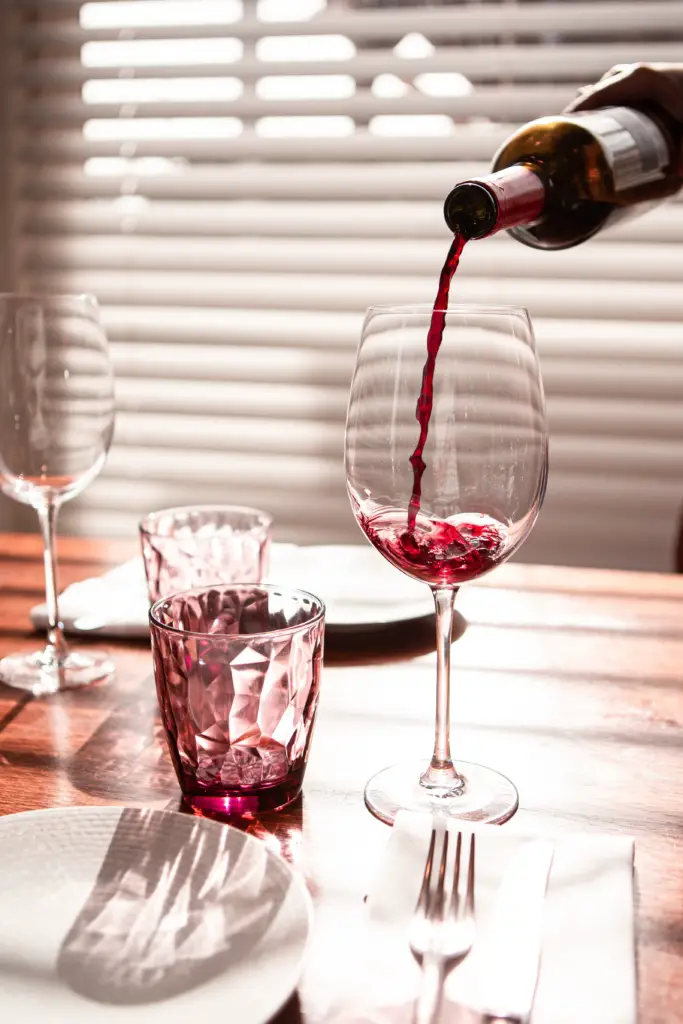
Your bedroom is too hot or cold
There’s such a thing as the right bedroom temperature. Most of us are familiar with sweaty summer nights that are too hot to sleep. We understand that warm temperatures can make it hard to fall asleep. When eventually you manage to fall asleep in a hot room, you’re unlikely to wake up feeling refreshed on the next day. Elevated temperatures decrease REM sleep. A cold bedroom isn’t any better, though. Indeed, a cold environment doesn’t affect your REM sleep. But it makes it hard to fall asleep.
In conclusion, artificial blue light is only one of the many elements that can disrupt your sleep. Simple changes, such as monitoring your bedroom temperature or straightening your teeth, can completely transform your bedtime experience. Proof that there is a lot that goes into a good night’s sleep.

